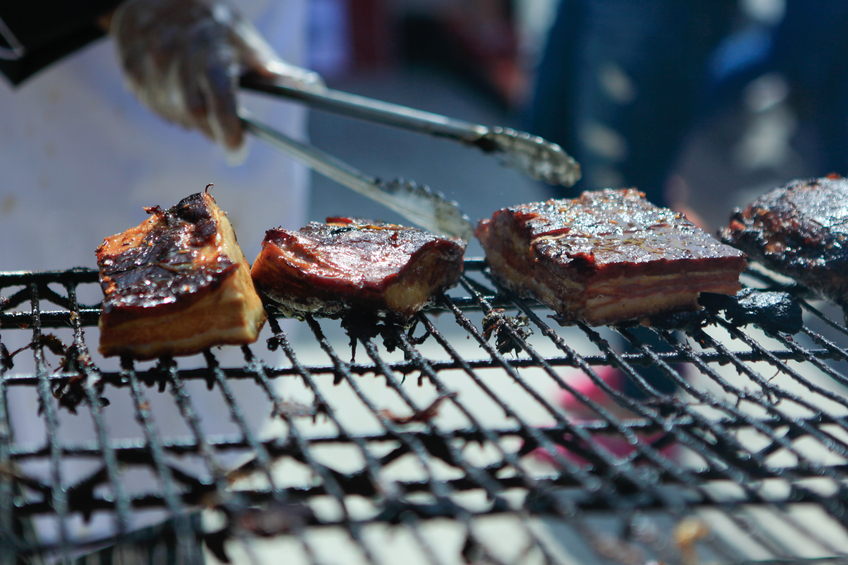The Science of Smoke
Humans have been smoking our food since at least the Stone Age. Until the advent of canning and refrigeration, smoking was one of the principal ways to preserve meat and fish. Today, we differentiate smoked foods as being either cold-smoked or hot-smoked. Both methods impart flavor compounds from the smoke into the food.
Cold-smoking means exposing the food to smoke at temperatures below 100º F for a relatively long period of time. This flavors the food, but does not cook it—so cold-smoked foods are traditionally preserved via some other means (such as curing).
Hot-smoking, which means exposing the food to temperatures between 140º and 200º F, actually cooks the food, so hot-smoked foods must be either eaten at once, quickly and carefully cooled to below 40º, or canned to preserve them.
What’s the basic process for smoking foods such as salmon? The first step is to brine it, typically using sugar and spices in addition to salt. Next the food must air dry in order to form the all-important pellicle. The pellicle is a skin or coating of proteins that the smoke molecules can easily stick to; this is especially important with salmon, which develops a distinctly tacky feel when properly brined and dried. The food is then exposed to smoke from a hardwood (alder is the traditional Alaskan choice) until it reaches the desired level of dryness and flavor (cold-smoking) or the desired internal temperature (hot-smoking).
How does smoking actually preserve food? Along with drying and salting, a number of wood smoke compounds also act as preservatives. Phenol and other phenolic compounds found in wood smoke are antioxidants and help slow the spoilage of animal fats; they also act as anti-microbials, which hinder bacterial growth. Other anti-microbials in wood smoke include acetic acid and other organic acids, which create a low pH – about 2.5 – that also inhibits the growth of bacteria. The end result is both an extended shelf life and a delicious flavor.




